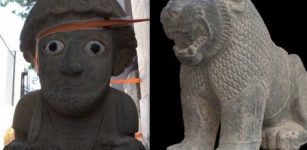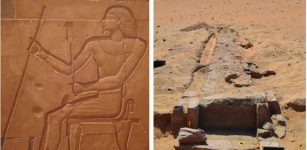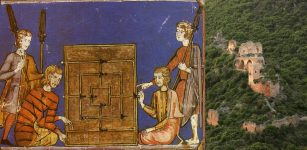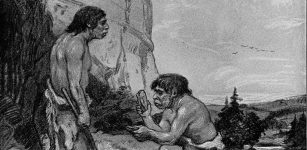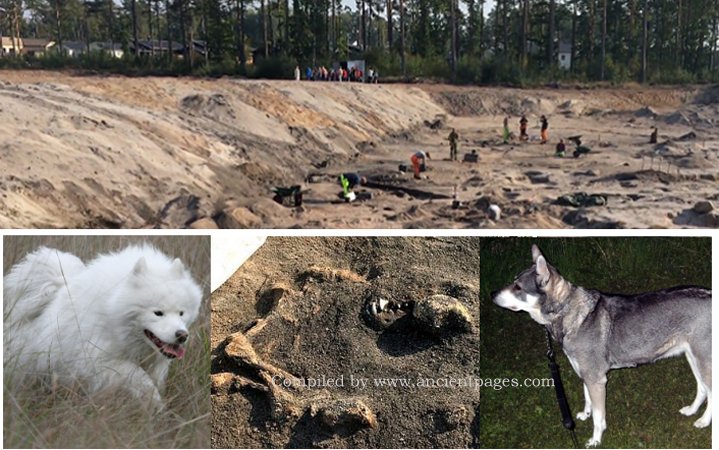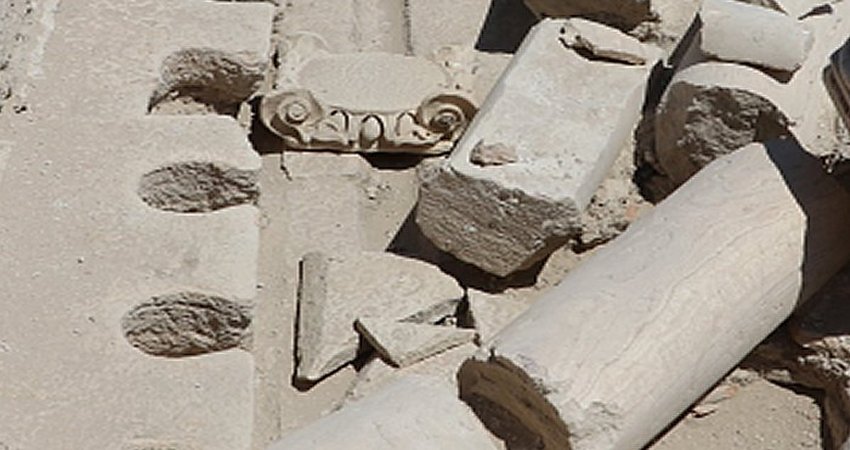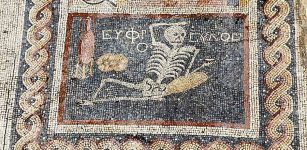Mysterious Cliff Burial: 131 Ancient Hanging Coffins Found In Hubei Province, China
MessageToEagle.com – A large cluster of hanging coffins have been found in central China’s Hubei province. The wood coffins were discovered in man-made caves and between rocks halfway up a cliff.
The 131 hanging coffins, located on a cliff in Yanglinqiao village in Zigui county, date back 1,200 years, according to initial archeological studies.
The coffins, placed inside dense man-made caves dubbed “Cave of the Fairies” by the locals, are about 100 meters high and spread over 50 meters. They belonged to the Bo people, an ethnic group during the Tang Dynasty, reports Chinanews.

Cliff burial was a funeral style widely practiced in southern China. Ancient people believed that hanging coffins prevented bodies from being taken by beasts, and blessed the souls of the deceased eternally.
See also:
Mysterious Ancient Tradition Of ‘Hanging Coffins’
The coffins have become important cultural heritages, as well as a mystery. How the heavy coffins, along with many sacrificial objects, were carried up the cliffs remains unknown. These particular coffins were damaged by villagers in the 1960s and 70s, who burnt the coffins as firewood.
According to Yu Bo, chief of the Zigui Cultural Relics Bureau, the cliffs have been added to the list of cultural heritage for protection, and repairs are underway.
The Bo People, who flourished for some 400 years in the Hemp Pond Valley in Southwest China’s Gongxian County, are known in local annals as Ya Ze–“Sons of the Cliffs.” They were also called Tu Tian, “Subjugators of the Sky.”
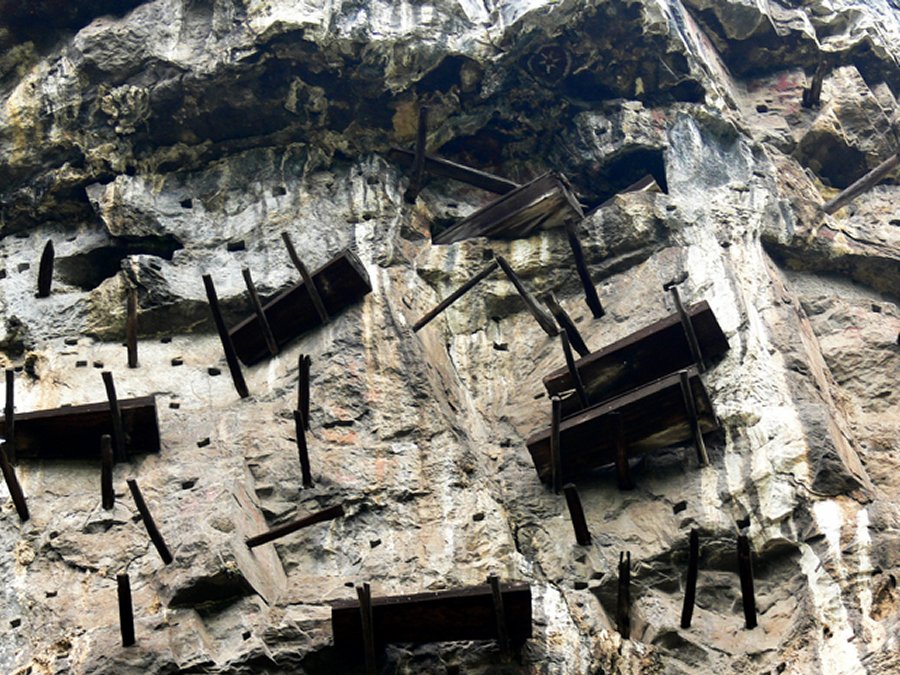
The Bo were very curious people and differed from other ethnic groups in their burial customs. This culture is lost today. In the summer when it was hot, they wore leather coats and warmed themselves by the fire; in the winter, they wore a single sweat garment and carried big fans in their hands.
The Bo – an ethnic minority people living astride the borders of modern day Sichuan and Yunnan provinces – created a brilliant culture as early as 3,000 years ago.
Why the Bo lived this way and interred their dead on the sides of cliffs remain a mystery; only intermittent mention of them exists in Chinese history, and they eventually disappeared without a trace.
Typically hewn from durable hardwood logs, their hanging coffins went unpainted. The most recent hanging coffins were made up to about 400 years ago in the middle and later periods of the Ming Dynasty (1368-1644), while many of the earliest ones date back 1,000 years to the Song Dynasty (960-1279). To date, the earliest hanging coffin was one found in the Three Gorges area, dating back about 2,500 years to the Spring and Autumn Period (770 BC- 476 BC).
The hanging coffin was the most widespread form of burial in ancient southwest China. However, the practice ended with the mysterious disappearance of the Bo People.
Those who came after knew them from the hanging coffins and the paintings they left behind like faint echoes on the cliffs.
MessageToEagle.com
source: China Internet Information Center

